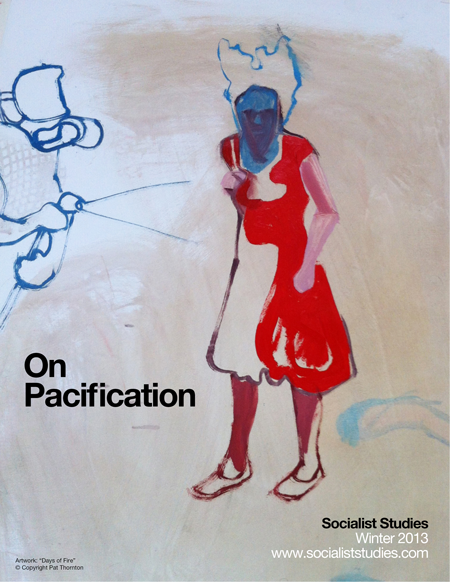Pacifying the ‘Armies of Offshore Labour’ in Canada
DOI:
https://doi.org/10.18740/S45P4TKeywords:
unfree migrant labour, pacification, global apartheid, racialization, anti-security.Abstract
An exploration of the link between pacification and global apartheid in the context of the racialized effects of neoliberal labour migration is undertaken. Drawing on the general layout of Canada’s temporary labour migration regime, the legal regulation of migrant labour is taken as a project of pacification that enforces apartheid conditions. Juxtaposed against the construction of migrant labour as menace or threat to ‘host’ communities in Canada, the growing need for “armies of offshore labour” presents an especially acute challenge for capital and national states. Despite certain perceptions that it is freed from national state constraints owing to the hyper-competitiveness of contemporary migration, capital remains deeply beholden to the politico-legal interventions of states, both sending and receiving. Situated within the hierarchical and uneven logic of the nation-state system and global capitalist development, pacification becomes a way in which capital and states attempt to mediate contradictions and govern not “insecurities” surrounding human mobility but rather the need to fabricate productive labour, a need contingent upon the complex transnational legal regulatory dynamic of unfree migrant labour which itself relies upon and perpetuates apartheid.Downloads
Published
Issue
Section
License
Copyright: Authors who publish in the Journal agree to the following terms: 1)Authors retain copyright and grant the Journal the right of first publication with the work simultaneously licensed under a Creative Commons Attribution License that allows others to share the work with an acknowledgement of the work's authorship and initial publication in the Journal; and, 2)Authors are able to enter into separate, additional contractual arrangements for the non-exclusive distribution of the Journal's published version of the work (eg post to an institutional repository or publish it in a book), with an acknowledgement of its initial publication in the Journal.






